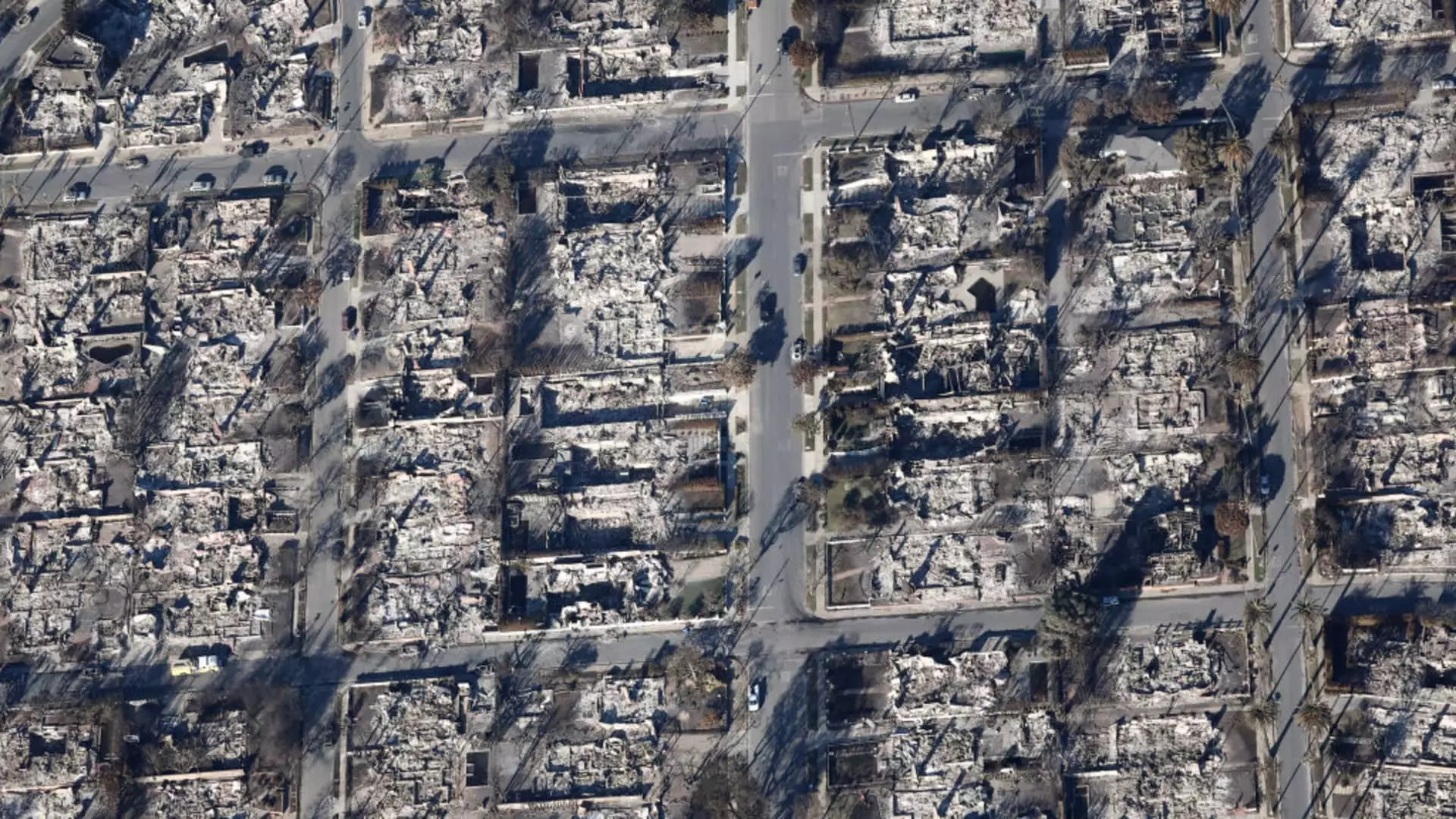Joe Thompson’s search for housing underscores a harsh reality faced by many families in the wake of natural disasters. Following the recent wildfires that devastated parts of Los Angeles, Thompson, a 44-year-old trader and investor, finds himself in a precarious situation. His family, which includes two young children, was forced to flee their home in Pacific Palisades, a neighborhood ravaged by flames. Even though their house remains standing, the uncertainty of damage assessments and safe return has left Thompson and countless others scrambling for affordable housing in a city already grappling with a housing crisis.
Desperation led Thompson to a five-bedroom rental in Santa Monica, recently listed for an exorbitant $28,000 per month. Such an increase—over 100% from last year’s rates—highlights a disturbing trend where landlords exploit urgent housing needs. Multiple applications for the property further illustrate how competitive and cutthroat the market has become, forcing potential renters like Thompson to reconsider their options.
The aftermath of the wildfires has created a perfect storm for price gouging, as demand for rental housing skyrockets amid a limited supply. Anecdotal evidence collected by various housing advocates indicates significant hikes in rental prices, with some exceeding the legal limit of a 10% increase during a declared state of emergency in California. Homeowners, many of whom have not participated in the rental market for decades, are suddenly thrust into a situation where they can charge exorbitant prices to desperate families.
As real estate professionals point out, this crisis disproportionately affects those who were already vulnerable before the wildfires. Low-income renters find themselves at a severe disadvantage, as they cannot compete with wealthier individuals willing to pay inflated prices. Research consistently shows that when crises hit, the rental burden often falls hardest on those least equipped to absorb additional costs.
Advocacy groups and state representatives are raising alarms about the potential human cost of these price hikes. California Assemblymember Jacqui Irwin condemned the actions of landlords looking to capitalize on misfortune, calling such behavior “absolutely unacceptable.” In response to the rising incidences of price gouging, various organizations have mobilized to assist affected families and track illegal price increases. The Los Angeles Tenants Union reports receiving over 450 tips regarding suspicious rental hikes, some as high as 100% post-fire.
Magdaleno Rosales, an organizer for the Union, expresses concern that the ongoing crisis will exacerbate existing housing and homelessness issues in Los Angeles. “This city was already struggling with a housing crisis, and these wildfires have only intensified that struggle for many,” he stressed.
In light of the crisis, several temporary housing solutions have been implemented, including state-run shelters and initiatives from Airbnb.org to offer free housing. Yet, the scale of the need is staggering. With over 12,300 structures destroyed and tens of thousands of acres burned, many families are left with nowhere to turn. Reports indicate families are crammed into hotels or relying on the goodwill of friends and relatives, often adjusting to life with minimal possessions.
The emotional toll on families facing loss and displacement cannot be understated. Thompson, like many others, expresses deep concern for his family’s future security and stability, remarking on the unpredictability that comes with searching for housing in such a volatile market.
While the housing market appears bleak, pockets of compassion persist, contradicting the narrative of greed that often dominates discussions about post-disaster housing. Some landlords refuse to raise rents significantly, choosing instead to maintain or even lower prices for victims of the wildfires. Individuals like Tannis Mann, who recently lost her home, report being eliminated from consideration for properties that drastically raised their prices; she aims to avoid landlords who take advantage of people’s suffering.
However, not every displaced individual is as fortunate, highlighting a stark divide in the availability of reasonable housing options. As families like Ashley and Tim Polmateer face staggering price increases and challenges in finding new homes, they remain hopeful yet frustrated. They, along with many others in similar situations, are relying on temporary accommodations and searching tirelessly for a more comprehensive solution to their housing crisis.
The path forward for families like the Thompsons and Polmateers is fraught with obstacles. The scramble for housing amid a disaster is emblematic of a larger systemic issue concerning housing security in urban areas, especially in high-demand locales like Los Angeles. As the community rallies to support those displaced, the looming question remains: how can we ensure that those in desperate need of housing are not further victimized by those looking to capitalize on their misfortune?
The urgency of addressing these concerns is paramount. With wildfires becoming an increasingly common threat, there is a pressing need for policy changes that prioritize the welfare of families affected by disasters and provide protections against exploitative practices in the housing market. Respecting human dignity in the face of calamity should be our guiding principle as we navigate this precarious landscape of post-disaster recovery.


Leave a Reply